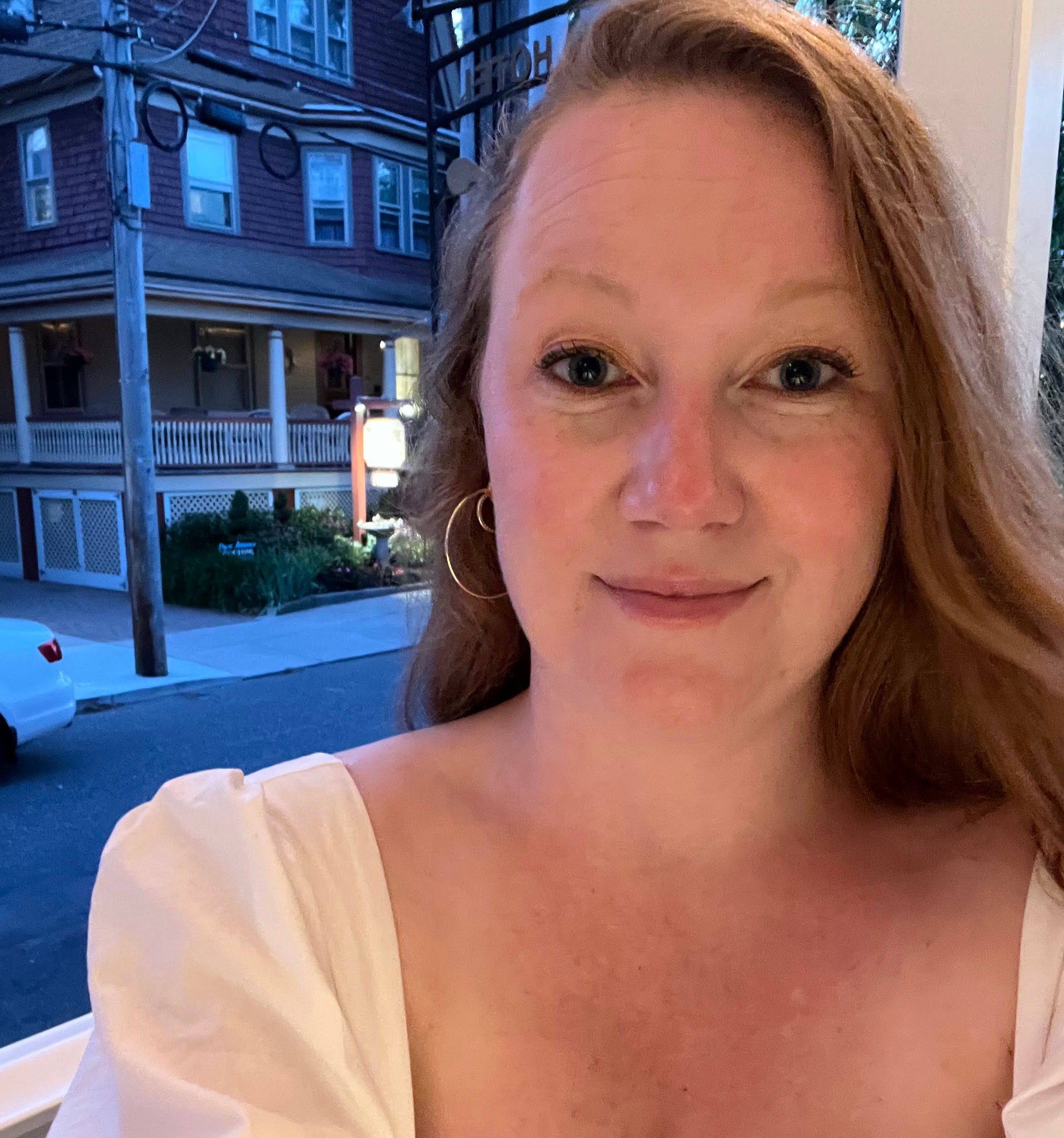Depression Therapy in Philadelphia PA, Ocean City NJ, Providence RI, Mechanicsville VA, Fayetteville GA
When you think of depression, sadness may first come to mind. But depression is much more than the ordinary sadness you might expect someone to feel after losing a job or failing a test. A mood disorder, depression is deeper and more persistent than typical bouts of feeling sad.
Depression tends to be persistent, involving prolonged feelings of sadness, emptiness, hopelessness, and loss of interest in activities. Depression affects every part of you, from your emotional well-being to your physical health, even showing up at times as physical pain and digestive issues.
If you think you may be depressed, consider scheduling an appointment with one of our expert depression therapists in Fayetteville GA, Philadelphia PA, Ocean City NJ, Santa Fe NM, and Mechanicsville VA. While depression therapy may require long-term treatment, there is hope: Most people do get better.
As one of the most common types of psychiatric disorders, depressive disorders occur in people of all ages across the world. Depression can present at any age, but initial onset is most common in the teenage years and early adulthood. Women tend to report depression more frequently than men.
How to Tell if You’re Depressed
Depression Therapy in Fayetteville GA, Philadelphia PA, Ocean City NJ, Santa Fe NM, Providence RI, Mechanicsville VA: Schedule an appointment today
Sometimes it can be hard to know the difference between ordinary sadness and depression, especially if you’ve recently experienced a major loss. You might be wondering, what does it mean to be depressed?
Unlike depression, sadness is always caused by an external event, like a relationship ending or the death of a loved one. Depression, on the other hand, can manifest without any external factors, causing someone to feel sad and hopeless about everything, often without knowing why. And while someone who is feeling sad may come in and out of their sadness, someone experiencing depression likely feels they’re constantly walking in a cloud of emptiness and hopelessness. Someone who is depressed may lose all motivation and interest in what they once enjoyed. In fact, people who are depressed usually experience little to no pleasure in their lives overall. Finally, depression is different from ordinary sadness in that it meaningfully affects your functioning, making it difficult to be in relationships and participate in work or school.
Some people just experience depression once, but it’s commonly something people experience in multiple episodes of varying intensities. A depression therapist can help you learn to learn to better anticipate the signs of an episode and provide you with the tools to reduce its intensity.
You may be suffering from depression if you find yourself noticing some of the following for two weeks or more:
Please note that the bullets below are just a reference, and only a qualified depression therapist or clinician can diagnose you with depression.
A persistent depressed mood most of the day, nearly every day.
Significantly diminished interest or pleasure in all, or almost all, activities most of the day, nearly every day.
Significant weight loss when not dieting or weight gain, or decrease or increase in appetite nearly every day.
A slowing down of thought and a reduction of physical movement (observable by others, not merely subjective feelings of restlessness or being slowed down).
Near constant loss of energy.
Feelings of worthlessness or excessive or inappropriate guilt nearly every day.
Diminished ability to think or concentrate, or indecisiveness, nearly every day.
Recurrent thoughts of death, recurrent suicidal ideation without a specific plan, or a suicide attempt or a specific plan for committing suicide. If feeling suicidal, call the National Suicide Prevention Lifeline at 1-800-273-8255.
Unexplained physical problems, such as back pain or headaches.
Changes to your mood aren’t directly caused by substance use/, medication side effects, or physical illness. If you also notice yourself experiencing physical symptoms at the same time as your depressed mood, it is important to be evaluated by a medical doctor who can rule out physical illness.
Types of Depression Therapy We Offer
Depression Therapy in Fayetteville GA, Philadelphia PA, Ocean City NJ, Santa Fe NM, Providence RI, Mechanicsville VA: Schedule an appointment today
The Center for Growth offers depression therapy across its offices, including Fayetteville GA, Philadelphia PA, Ocean City NJ, Santa Fe NM, Providence RI and Mechanicsville VA. Our therapists are experts in depression treatment and provide services for all types of depression, including:
Major Depressive Disorder: therapists for Major Depressive Disorder in Fayetteville GA, Philadelphia PA, Ocean City NJ, Santa Fe NM, Providence RI and Mechanicsville VA.
Bipolar 1 & 2
Persistent Depressive Disorder (Dysthymia): therapists for Persistent Depressive Disorder (Dysthymia) in Fayetteville GA, Philadelphia PA, Providence RI, Ocean City NJ, Santa Fe NM, and Mechanicsville VA.
Premenstrual Dysphoric Disorder: therapists for Premenstrual Dysphoric Disorder in Fayetteville GA, Philadelphia PA, Providence RI, Ocean City NJ, Santa Fe NM, and Mechanicsville VA.
Disruptive Mood Dysregulation Disorder: therapists for Disruptive Mood Dysregulation Disorder in Fayetteville GA, Philadelphia PA, Ocean City NJ, Providence RI. Santa Fe NM, and Mechanicsville VA.
Postpartum Depression: therapists for Postpartum Depression in Fayetteville GA, Philadelphia PA, Ocean City NJ, Santa Fe NM, Providence RI and Mechanicsville VA.
Seasonal Affective Disorder: therapists for Seasonal Affective Disorder in Fayetteville GA, Philadelphia PA, Ocean City NJ, Santa Fe NM, Providence RI and Mechanicsville VA.
Depression in Children and Teens: therapists for depression in children and teens in Fayetteville GA, Philadelphia PA, Ocean City NJ, Santa Fe NM, Providence RI and Mechanicsville VA.
Anger Management: therapists for anger management in Fayetteville GA, Philadelphia PA, Ocean City NJ, Santa Fe NM, Providence RI and Mechanicsville VA.
Depression Therapy: How It Works
Depression Therapy in Fayetteville GA, Philadelphia PA, Ocean City NJ, Santa Fe NM, Providence RI, Mechanicsville VA: Schedule an appointment today
Our therapists use a variety of modalities to treat depression. While each of our therapists has a different approach, all are highly trained and effective at treating depression.
Cognitive Behavioral Therapy (CBT) for Depression
Cognitive Behavioral Therapy for Depression in Fayetteville GA, Philadelphia PA, Ocean City NJ, Santa Fe NM, Providence RI, Mechanicsville VA
A common approach for treating depression is cognitive behavioral therapy. Our therapists use cognitive behavioral therapy to help people better understand the relationship between their thoughts, feelings, and behavior. Cognitive behavioral therapy for depression seeks to identify the thought patterns that make people feel depressed and behave in ways that ultimately worsen their mood. Ultimately, cognitive behavioral therapy helps people to change their thoughts to be kinder and more accurate, helping them to feel better and behave in healthier ways. A cognitive behavioral approach to depression therapy is typically short-term, meaning approximately 12-16 sessions.
Mindfulness Therapy for Depression
Mindfulness Therapy for Depression in Fayetteville GA, Philadelphia PA, Ocean City NJ, Santa Fe NM, Mechanicsville VA, Providence RI
Similar to cognitive behavioral therapy, mindfulness-based therapy for depression can support you to feel better by improving how you relate to your thoughts and feelings. Depression typically involves entrenched patterns of negative thoughts that run on a loop. A mindfulness-based therapist can help to interrupt that negative thought loop by teaching mindfulness skills that help you to stay in the present. By helping you to learn how to anchor your attention in the present, such as with the sensation of breath, the taste of food, or the feeling of sunshine on your face, you have less mental space available to ruminate on past failures or future worries.
Mindfulness-based therapy for depression helps you to become more familiar with the negative thought patterns you ruminate on, like “There is something wrong with me” or “I’m not good enough.” When you become more familiar with the depressive thoughts, it becomes easier to identify them, recognize that they are just thoughts and not necessarily the objective truth, and disengage as they arrive. This creates space between you and the thoughts, and that spaciousness often brings significant relief to people suffering from depression. Some examples of mindfulness-based therapies we use include: Mindfulness-Based Stress Reduction (MBSR), Mindful Self-Compassion (MSC), Acceptance and Commitment Therapy (ACT), Dialectical Behavior Therapy (DBT), and Mindfulness-Based Cognitive Therapy (MBCT).
Psychodynamic Therapy for Depression
Psychodynamic Therapy for Depression in Fayetteville GA, Philadelphia PA, Ocean City NJ, Santa Fe NM, Mechanicsville VA, Providence RI
Psychodynamic therapy encourages you to talk freely about whatever happens to be on your mind. As you free associate, a therapist helps you to identify patterns of behavior and feelings that stem from past experiences, allowing unrecognized feelings to become visible. The focus of this type of therapy for depression is to become more aware of how past experience and the unconscious mind are affecting one’s depression in their present life. There is a special focus on early familial relationships and how they impact one’s future relationships with self and others. With increased insight about the origins of depression, clients gain more freedom for how they live their lives. For clients who want to understand their experience in a deep way, this treatment modality, usually taking place over a year or more, may be the right choice.
Depression Therapy for Children and Teens in Ocean City NJ, Philadelphia PA, Providence RI & Fayetteville GA
Depression Therapy for Children and Teens
Depression Therapy for Children and Teens in Philadelphia PA, Ocean City NJ, Santa Fe NM, Mechanicsville VA, Providence RI
Children and teens may experience similar symptoms of depression to those of adults, but there can also be some differences.
Younger children with depression may refuse to go to school, become clingy, report aches and pains, or become irritable. Our therapists utilize play therapy to connect with kids using their language: play. Since children cannot as effectively verbalize their thoughts, play allows them to express themselves in an age appropriate way. Through play, therapists help children learn adaptive behaviors when there are problems with emotional or social skills, enhance self-esteem, and improve decision-making skills. Combined with family therapy, this approach to treating depression in children is highly effective.
Teen symptoms of depression may include poor performance at school or in activities, using recreational drugs, sleep problems, self-harm, social isolation, being highly sensitive, anger and irritability, and feeling worthless. Teen and adolescent therapy for depression typically uses cognitive behavioral therapy to give teens more awareness of their thoughts and better coping skills for managing stress.
If you’re wondering whether depression therapy is right for you, we welcome you to schedule an initial session or call our intake line at (215) 922-5683 x100 to discuss treatment options and learn more.
The Center for Growth Therapy Offices in CT, DE, GA, NJ, NM, PA, RI, VA
- Fayetteville Therapy Office
101 Devant Street, #606 Fayetteville GA 30214 - Ocean City Therapy Office
360 West Ave, Floor 1, Ocean City, NJ 08226 - Santa Fe Therapy Office
2204 B Brothers Road, Santa Fe, NM 87505 - Art Museum / Fairmount Therapy Office
2401 Pennsylvania Ave, Suite 1a2, Philadelphia, PA 19130 - Society Hill Therapy Office
233 S. 6th Street, C-33, Philadelphia, PA 19106 - Providence Therapy Office
173 Waterman St. Providence, RI 02906 - Mechanicsville Therapy Office
9044 Mann Drive, Mechanicsville, VA 23116 - Telemedicine: We have therapists who are licensed to work in Delaware, Connecticut, Florida, Georgia, New Jersey, New Mexico, Pennsylvania, Rhode Island, and Virginia.
If you would like to schedule a therapy appointment you are encouraged to look at our clinician biographies and schedule online. Each therapist's phone number is listed on their home page, or you can call (215) 922-LOVE (5683) x 100 to speak with one of our intake specialists. You may also contact our Director, “Alex” Caroline Robboy, CAS, MSW, LCSW at (267 324 9564) or the Clinical Director Dr. Foust at 267-262-8515 to discuss your particular situation.























